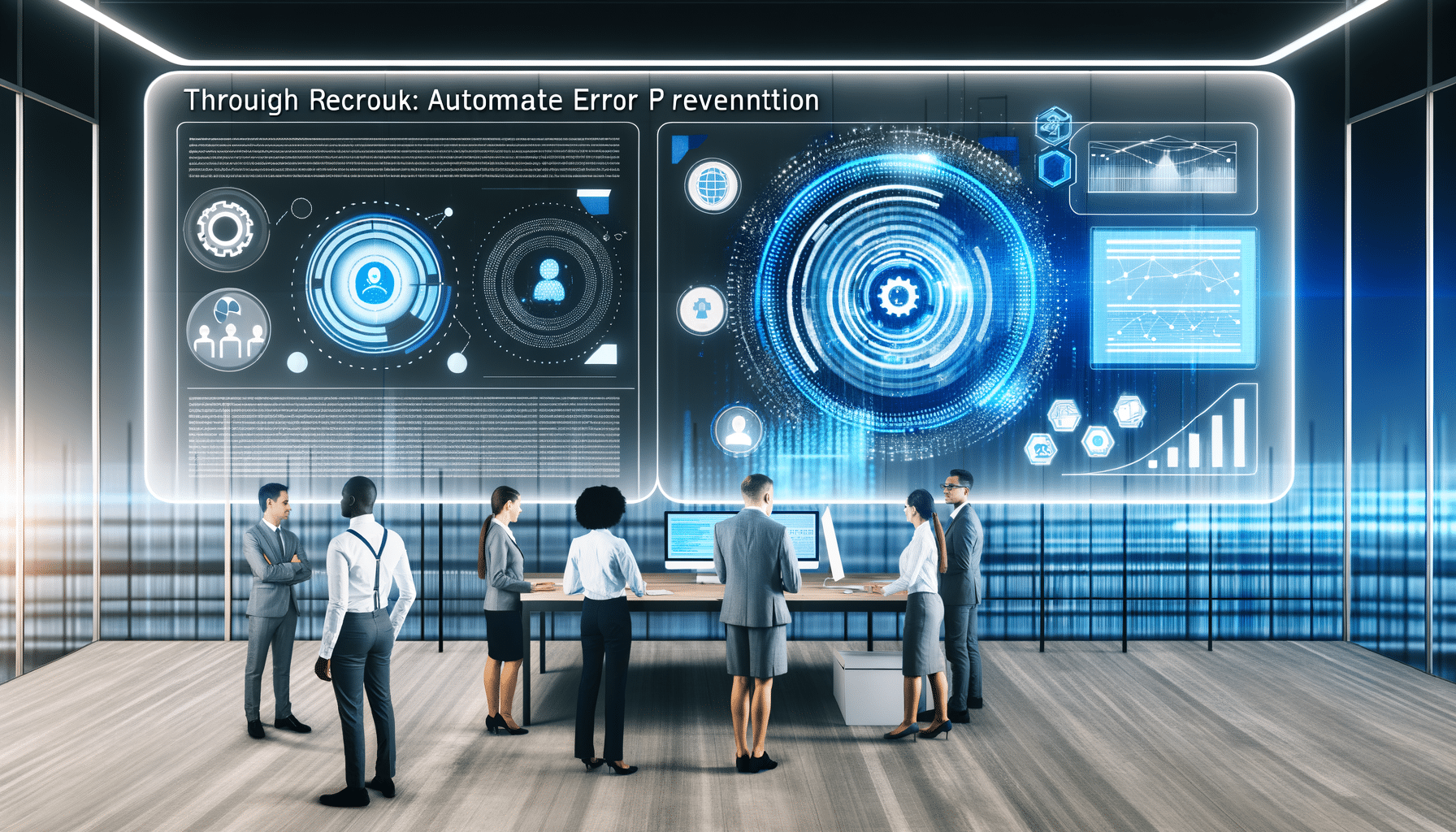- Quality Control
- January 17, 2025
Setting Up Department Record Reviews

In the fast-paced world of today’s businesses, maintaining meticulous records is more crucial than ever. However, simply storing records is not enough. For true efficiency and compliance, regular reviews of these records are essential. I’ve dedicated a good part of my career to refining how record management systems function, and today, I’d like to share insights on setting up structured department record reviews that not only streamline operations but also enhance quality control.
Understanding the Importance of Regular Department Reviews
For many organizations, record keeping is seen as a necessary obligation rather than a strategic advantage. This perspective can lead to missed opportunities and inefficiencies. Regular department reviews offer a multitude of benefits:
- Improved Compliance: By ensuring records are up to date and complete, organizations can more easily meet regulatory requirements such as GDPR, HIPAA, and SOX.
- Enhanced Security: Reviewing records regularly helps to spot potential security vulnerabilities, safeguarding sensitive information.
- Operational Efficiency: Ensures records are categorized correctly, making data retrieval faster and more accurate.
Step-by-Step Guide to Implementing Department Record Reviews
Embarking on the journey to implement department record reviews might seem daunting, but with a structured approach, it becomes manageable and rewarding.
1. Define Objectives and Scope
Start by outlining what you aim to achieve with department reviews. Are you aiming for compliance, enhanced data security, or operational efficiency? Defining clear objectives helps focus efforts and measure success accurately.
2. Assemble a Cross-Functional Team
Form a team comprised of individuals from different departments. This could include IT, compliance, and the specific department whose records are under review. A diverse team will bring varied perspectives, ensuring comprehensive analysis and recommendations.
3. Develop a Record Review Framework
Framework design should include:
- Classification Criteria: Establish a consistent method for categorizing records.
- Review Frequencies: Decide how often reviews will take place- monthly, quarterly, or annually.
- Monitoring Tools: Leverage AI-powered tools like those at RecordsKeeper.AI for classification and categorization, reducing manual workload.
4. Training and Awareness
The efficacy of department reviews often hinges on how well staff understands and participates in the process. Conduct training sessions to ensure everyone understands their roles and the importance of the review process.
5. Execute and Document
Once the framework is in place, execute the review. Make sure to document findings meticulously as these insights will inform policy adjustments and strategic decisions moving forward. Documentation also simplifies audit processes, providing clear evidence of compliance and process execution.
6. Address Findings
Utilize findings to correct any identified gaps or inefficiencies. This could mean updating data policies, modifying records security protocols, or introducing new compliance measures.
7. Continuous Improvement
Department record reviews are not one-time tasks. They should be part of a continuous improvement strategy. Regularly update review processes based on evolving business goals and regulatory changes.
The Role of Cutting-edge Technology in Records Reviews
Innovation in technology profoundly transforms how we manage records. By integrating AI and Blockchain, platforms like RecordsKeeper.AI automate many aspects of the review process:
- Automated Classification: Leverage AI to automatically sort and tag documents, drastically reducing human errors and time spent on manual categorization.
- Data Integrity: Blockchain integration ensures records are immutable, providing an audit-friendly trail of changes and access.
- Enhanced Security: Implementing secure data rooms and real-time tracking of record accesses to protect sensitive information from unauthorized breaches.
Embrace Efficient Record Management
Organizations aiming for enhanced quality control and efficiency must transition from seeing records as mere archives to strategic assets. By setting up effective department record review processes, you not only ensure compliance and security but also unlock unparalleled operational advantages.
If you’re ready to revolutionize your record management system, I invite you to explore RecordsKeeper.AI further and discover how AI and Blockchain can take your department reviews to the next level. By embracing technology and strategic processes, we can all ensure that our records work as hard as the rest of our assets to drive success.
Toshendra Sharma is the visionary founder and CEO of RecordsKeeper.AI, spearheading the fusion of AI and blockchain to redefine enterprise record management. With a groundbreaking approach to solving complex business challenges, Toshendra combines deep expertise in blockchain and artificial intelligence with an acute understanding of enterprise compliance and security needs.
Related Posts

Document Control for Quality Inspections
Organizing records for quality control processes.
- December 30, 2024

Through RecordsKeeper.AI: Automate Error Prevention
Perfect error prevention through AI intelligence.
- November 16, 2024
Archives
- January 2025
- December 2024
- November 2024
- October 2024
- September 2024
- August 2024
- July 2024
- June 2024
- May 2024
- April 2024
- March 2024
- February 2024
- January 2024
- December 2023
- November 2023
- October 2023
- September 2023
- August 2023
- July 2023
- June 2023
- May 2023
- April 2023
- March 2023
- February 2023
- January 2023
- December 2022
- November 2022
- October 2022
- September 2022
Want to get more content like this?
Signup to directly get this type of content to your inbox!!
Latest Post
Document Control for Equipment Maintenance
- January 20, 2025
Managing Records for Multiple Clients
- January 19, 2025
Handling Conference Documentation
- January 18, 2025
Setting Up Department Record Reviews
- January 17, 2025





